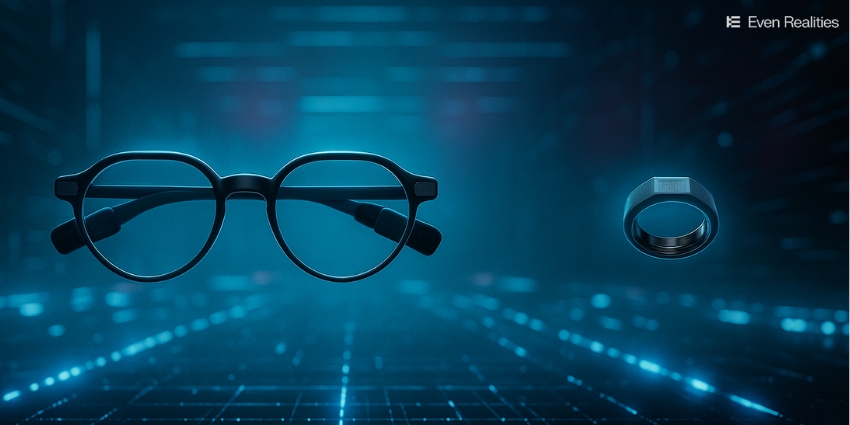This week, Meta officially released its Q1 earnings call and report highlighting general capital and operational growth for the firm. In contrast, the firm’s Reality Labs research and development division continues to record monetary losses; Meta remains committed to its immersive product portfolio, releasing significant hardware and software updates just days before yesterday’s call.
Meta reported a Q1 total revenue of $36.5 billion, up 27% in both reported and constant currency. In the meantime, its Q1 total expenses were $22.6 billion, a 6% increase compared to the previous year.
Meta now has around 69,300 employees, a 3% increase from Q4. The company’s Q1 operating income was $13.8 billion, representing a 38% operating margin. Meta’s capital expenditures, including principal payments on finance leases, were $6.7 billion, driven by investments in servers, data centres and network infrastructure.
Reality Labs, Meta’s XR division, reported a Q1 revenue of $440 million, up 30%, driven by Quest headset sales. However, Reality Labs’ operating loss was $3.8 billion, and its expenses were $4.3 billion, down 1% year-over-year. Higher headcount-related expenditures were more than offset by lapping inventory-related valuation adjustments and restructuring costs.
Furthermore, Reality Labs’ operations affected Meta’s overall cost of revenue, increasing it by 9%. This was partly due to higher infrastructure-related costs, partially offset by lapping Reality Labs inventory-related valuation adjustments. R&D increased by 6%, driven mainly through higher headcount-related expenses and infrastructure costs, partially offset by lower restructuring costs.
Susan Li, the CFO of Meta, added that “Q1 was a good start to the year,” with Li also noting how Meta is making “important progress” on its longer-term AI and Reality Labs initiatives that “have the potential to transform the way people interact with our services over the coming years.”
Li also explained:
We continue to see compelling investment opportunities to both improve our core business in the near term and capture significant longer-term opportunities in generative AI and Reality Labs. – Our other long-term initiative that we’re continuing to make significant investments in is Reality Labs. We are also starting to see our AI initiatives increasingly overlap with our Reality Labs work. For example, with RayBan Meta smart glasses, people in the US & Canada can now use our multimodal Meta AI assistant for daily tasks without pulling out their phone. Longer-term, we expect generative AI to play an increasing role in our mixed reality products, making it easier to develop immersive experiences. Accelerating our AI efforts will help ensure we can provide the best version of our services as we transition to the next computing platform.
Is Meta Banking on Smart Glasses and AI?
The past week proved to be a fruitful one for Meta. The firm had three significant updates to its immersive product portfolio that paint a picture of the firm’s goals.
Recently, Meta announced a Meta Quest for Education product, which acts similarly to the Quest for Bussiness model that suits a classroom environment with propose-built management features. Moreover, Meta is making its XR OS open for all developers, removing a walled garden approach and talking aim directly at Apple with a noteworthy open alternative. Most recently, the firm also debuted new Meta Ray-Ban models, which look to be a core investment for Meta that sees the AR-lite glasses as a gateway to combine AI and AR as one mainstream consumer product.
The CEO of Meta, Mark Zuckerberg, noted the success of Reality Labs is “clearest when you look at [smart] glasses.” The CEO also remarked how he thought AR glasses wouldn’t be a “mainstream product until we had full holographic displays — and I still think that will be awesome and is mature state of the product.”
Zuckerberg explained:
But now it seems pretty clear that there’s also a meaningful market for fashionable AI glasses without a display. Glasses are the ideal device for an AI assistant because you can let them see what you see and hear what you hear, so they have full context on what’s going on around you as they help you with whatever you’re trying to do. Our launch this week of Meta AI with Vision on the glasses is a good example where you can now ask questions about things you’re looking at.
Zuckerberg interestingly notes how Reality Labs’ strategy dynamic is increasingly leaning towards Meta’s overall AI efforts – creating a significant overlap between the technologies; he explained:
We currently report on our financials as if Family of Apps and Reality Labs were two completely separate businesses, but strategically, I think of them as fundamentally the same business with the vision of Reality Labs to build the next generation of computing platforms in large part so that way we can build the best apps and experiences on top of them. Over time, we’ll need to find better ways to articulate the value that’s generated here across both segments so it doesn’t just seem like our hardware costs increase as our glasses ecosystem scales, but all the value flows to a different segment.
Zuckerberg’s faith in its smart glasses product as a vessel to distribute AR and AI user experiences has solid evidence to back it up. The CEO noted that its current Ray-Ban Meta smart glasses “continue to do well and are sold out in many styles and colours, so we’re working to make more and release additional styles as quickly as we can.”
Meta has recently collaborated with technology partner EssilorLuxottica to introduce new designs and features for Ray-Ban smart glasses. The latest designs are not revolutionary but sleeker versions that aim to increase consumer adoption of the AR-lite device.
With three new frames, the second-generation smart glasses are expanding their range just in time for summer. The new Skyler frames are designed for smaller faces, while the low-bridge Headliner frames cater to wearers who find glasses sitting too low on their faces.
In addition, Meta is also introducing limited-edition Ray-Ban Meta smart glasses exclusively for the Scuderia Ferrari colourway in Miami in 2024. These new smart glasses are available for pre-order in 15 regions across the US, Canada, Australia, and Europe.
Zuckerberg remarked that he was “optimistic” about Meta’s approach to expanding the Ray-Ban smart glasses portfolio with an “increasing diversity of options over time.”
Zuckerberg also added:
If we want everyone to be able to use wearable AI, I think eyewear is a bit different from phones or watches in that people are going to want very different designs. So, I think our approach of partnering with leading eyewear brands will help us serve more of the market. I think a similar open ecosystem approach will help us expand the mixed reality headset market over time as well.
Promoting Diversity via Open XR Development
This Meta announced that it’s opening up Meta Horizon OS, which powers Quest headsets. The move allows a more comprehensive range of developers to create applications for the firm’s portfolio of XR products.
As part of its open approach, Meta is launching a revamped storefront called the “Meta Horizon Store,” which will serve as a platform for future open Quest applications.
Zuckerberg noted:
As the ecosystem grows, I think there will be sufficient diversity in how people use mixed reality that there will be demand for more designs than we’ll be able to build. For example, a work-focused headset may be slightly less designed for motion but may want to be lighter by connecting to your laptop. A fitness-focused headset may be lighter with sweat-wicking materials. An entertainment-focused headset may prioritize the highest-resolution displays over everything else. A gaming-focused headset may prioritize peripherals and haptics, or a device that comes with Xbox controllers and a Game Pass subscription out of the box.
On the other hand, Zuckerberg noted that first-party Quest devices will “continue to be the most popular headsets as we see today.” Zuckerberg also remarked that Meta continues focusing on “advancing the state-of-the-art tech and making it accessible to everyone.”
Like Apple’s walled garden ecosystem, Meta is taking an open approach to support its spatial computing vision. While Apple restricts developers to its hardware ecosystem, Meta provides a customisable framework for specified solutions, enabling partnerships with companies like LG to expand its product reach – “I also think that opening our ecosystem and opening our operating system will help grow the ecosystem even faster,” Zuckerberg said.
Zuckerberg Remains Optimistic Over Reality Labs Investment
“For Reality Labs specifically, I’m still really optimistic about building these new computing platforms long term,” Zuckerberg said. In closing, the CEO reiterated the opportunities that he sees in smart glasses.
Zuckerberg said:
Our outlook for that has improved quite a bit because previously, we thought that we would need to wait until we have these full holographic displays to be a large market. And now we’re a lot more focused on the glasses that we’re delivering in partnership with Ray-Ban, which I think are going really well. And — so that, I think, has the ability to be a pretty meaningful and growing platform sooner than I would have expected.
The CEO also remarked that more of the focus at Reality Labs will also revolve around AI goals, “but I still think that we should focus on building these long-term platforms, too,” he said.








